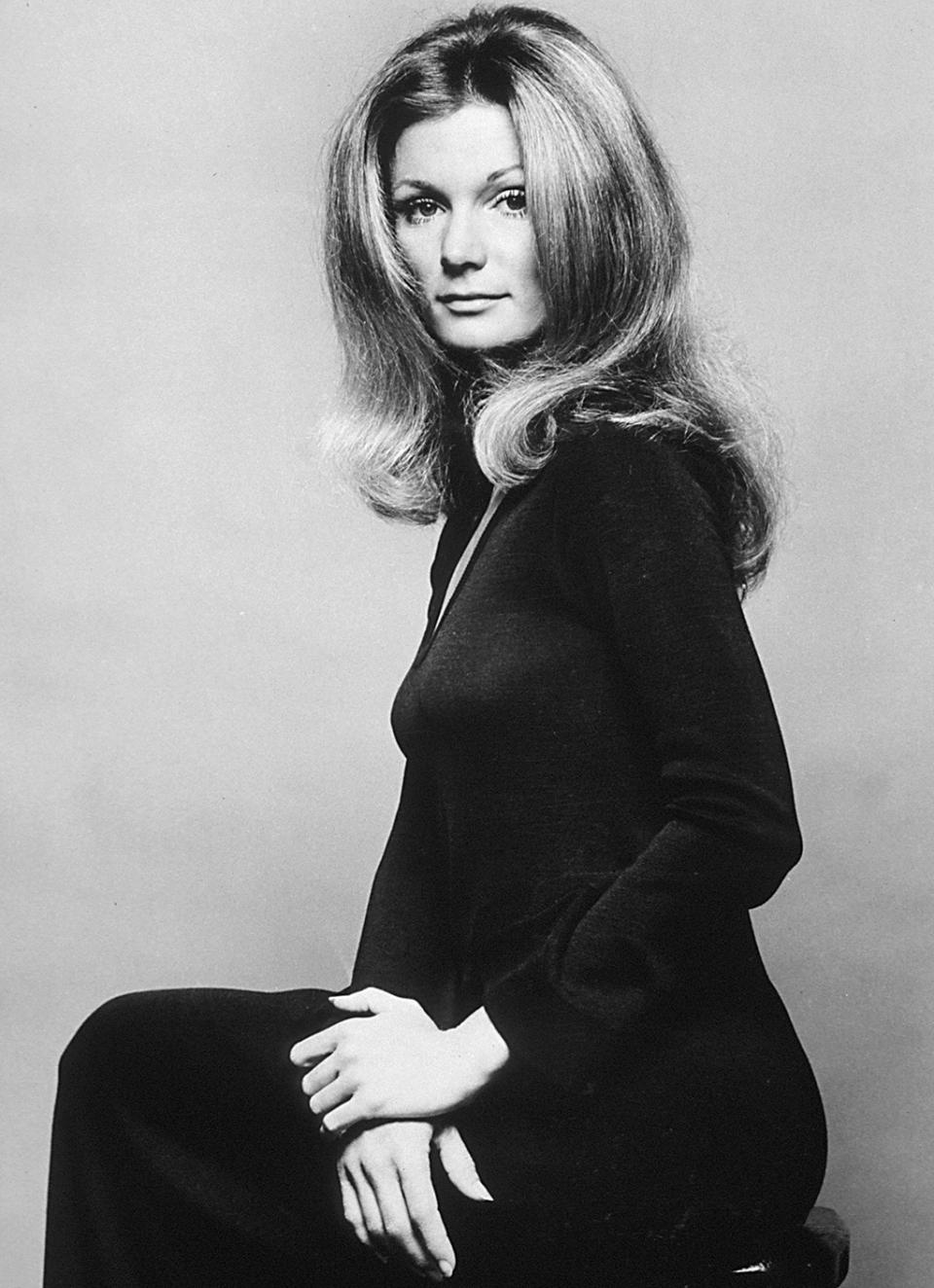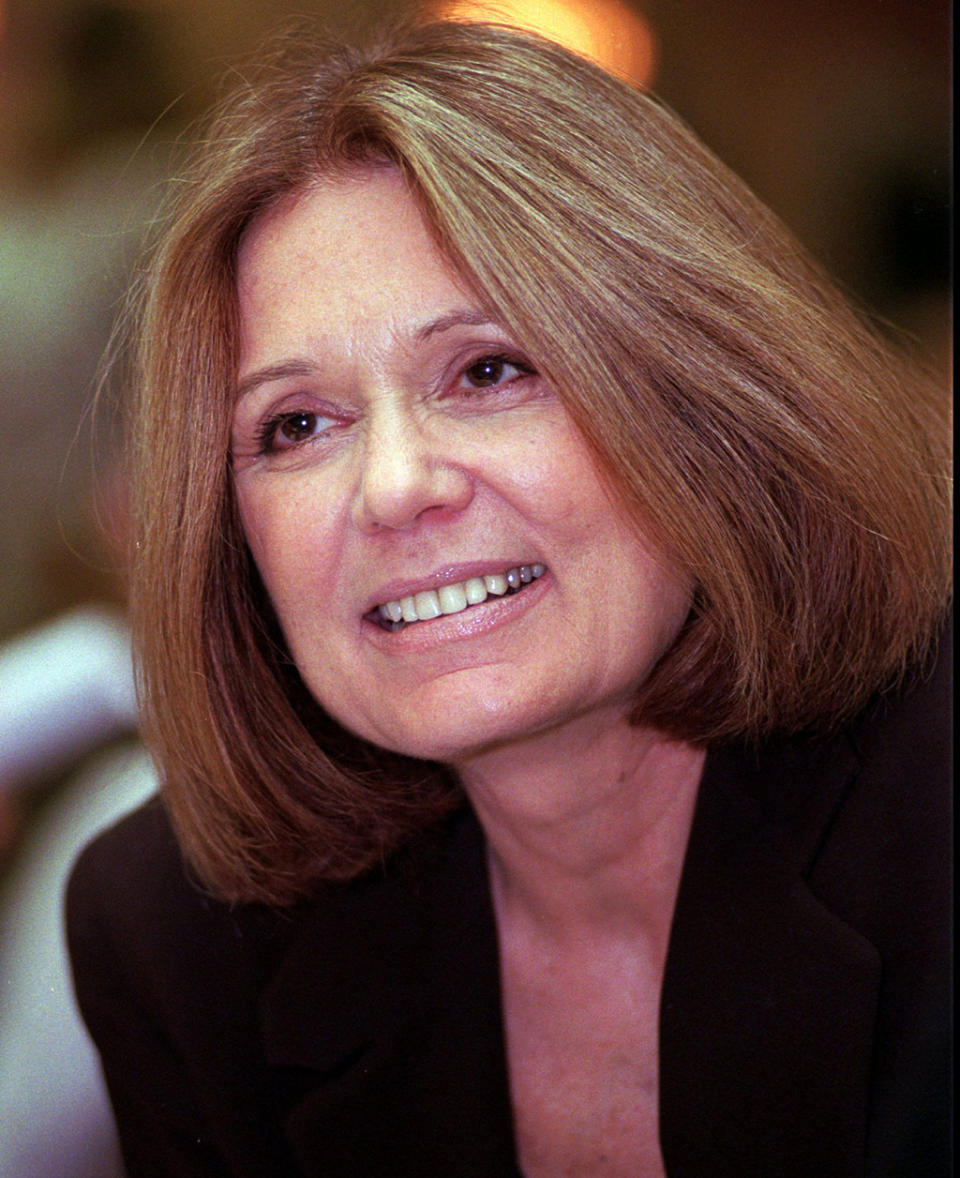Happy Birthday, Gloria Steinem! 7 Reasons to Celebrate the Feminist Icon

Gloria Steinem in 1977. (Photo: Getty Images)
Gloria Steinem turns 82 on March 25, and this feminist icon knows a thing or two about the pressures of beauty — particularly the persistent, sexist belief that good looks and brilliance are mutually exclusive. Steinem has always had both, and while that combo helped her gain national attention for the advancement of her equal-rights platform, it also held her back in her quest to be taken seriously.
Related: How Trump’s Sexist Comments About Beauty Hurt Women Everywhere
“Though a combination of beauty and power threatened men, it reassured women,” wrote biographer Carolyn G. Heilbrun in Education of a Woman: The Life of Gloria Steinem. That perceived dichotomy followed Steinem throughout her career, as she repeatedly faced comments from male reporters about her “stunning” looks “in spite” of her feminism. (Women played into that as well, including Washington Post columnist Maxine Cheshire, who once referred to Steinem as the “miniskirted pinup girl of the intelligentsia.”)

Steinem in 2016. (Photo: Laura Cavanaugh/Getty Images)
Early on, during a TV interview with two male news anchors for which she wore jeans and a leotard, she was asked, “Is there a paradox between women’s attitudes toward, you know, the fact that they don’t want to be treated as sex objects and the fact that you dress very sexily?” The line of questioning continued with, “I hope you forgive our masculine notion that you’re an absolutely stunning sex object.” To that, Steinem famously replied, “Well, I should comment on your appearance, but I don’t have the time.”
Related: Please Don’t Tell Hillary Clinton — or Any Woman — to Smile
Decades of snappy comebacks followed — including, of course, when she unintentionally turned off young feminists recently, who slammed her for being “reductive” after she suggested to Bill Maher that young women were supporting Bernie Sanders over Hillary Clinton because they were thinking, “Where are the boys?” She later apologized.

Steinem in 1965. (Photo: MPTV Images)
It was a questionable moment, to be sure. But in the span of 40-plus years between the aforementioned TV interview and that perceived slight, Steinem achieved more than most could hope for: She founded Ms. Magazine, went on global peacekeeping missions, lobbied for pro-abortion-rights leadership, and was inducted into the National Women’s Hall of Fame. In 2015, after many years of struggling against writer’s block, she published her memoir, My Life on the Road, sharing anecdotes from her hugely influential life. She is “the face of feminism,” as Gail Collins noted in her honorary 2014 op-ed “This Is What 80 Looks Like.”
How it looked, Collins wrote, was brilliant, powerful, and, for better or worse, beautiful — something the icon fights against to this day. “I think for her, as an individual, in one sense aging has been a relief,” Steinem’s friend Robin Morgan told Collins, “because she was so glamorized by the male world and treated for her exterior more than her interior.”

Steinem in 1972. (Photo: Getty Images)
Here are seven great reasons to honor Steinem’s whole self on this, her 82nd birthday:
1. She co-founded Ms. Magazine in 1972 — which, under her direction, became the first national publication to feature the topic of domestic violence on its cover — and is still a consulting editor of the original feminist publication. She also started the Women’s Media Center with Jane Fonda and Robin Morgan in 2005 and helped form the National Women’s Political Caucus.
2. Steinem has been a tireless mentor to younger women, working with the Sophia Smith Collection at Smith College (her alma mater) to document the grassroots origins of the U.S. women’s movement and co-founding URGE (Unite for Reproductive & Gender Equity) to support comprehensive sex education in schools. She was also the founding president of the Ms. Foundation for Women, a national organization that supports grassroots projects to empower women and girls.

Steinem in 1981. (Photo: Getty Images)
3. As a young writer, her essays paved the way for new ways of thinking about the world — particularly “A Bunny’s Tale,” for which she went undercover to work as a Playboy Bunny, and “If Men Could Menstruate,” which noted that, if men had their periods, “menstruation would become an enviable, worthy, masculine event.” She wrote, cheekily, “Men would brag about how long and how much.”
4. She established Take Our Daughters to Work Day (later expanded to include sons) in the summer of 1992 to address issues of self-esteem and exclusion among young girls.
5. In 1971, she was one of 300 female activists who founded the National Women’s Political Caucus, a multipartisan organization that, to this day, works to actively support, recruit, and elevate women in political office.

Steinem in 1997. (Photo: AP Images)
6. Steinem made the concept of feminism accessible to a generation of women who had grown up in the 1950s and experienced the post-World War II backlash of “women’s lib.” And while there’s been another, more contemporary backlash against the F-word (Katy Perry, Taylor Swift, and Kelly Clarkson all said, early on, that they were not feminists, although they later reversed their stances, while Lady Gaga and Shailene Woodley remain distanced from the identity), there have been plenty of new young embracers, including Lena Dunham, Tavi Gevinson, Ellen Page, and Zooey Deschanel.
7. She has been open about growing up with her mentally ill mother, who was unable to take care of her and who was consistently neglected by doctors unmoved by the health needs of women. Steinem admits to her own failings here too, including the times she yelled at and was bitter toward her mother for her shortcomings. “Perhaps the worst thing about suffering is that it finally hardens the hearts of those around it,” Steinem wrote. In sharing her personal stories, she taught millions of men and women to forgive their parents — and, in turn, themselves — for being human.



